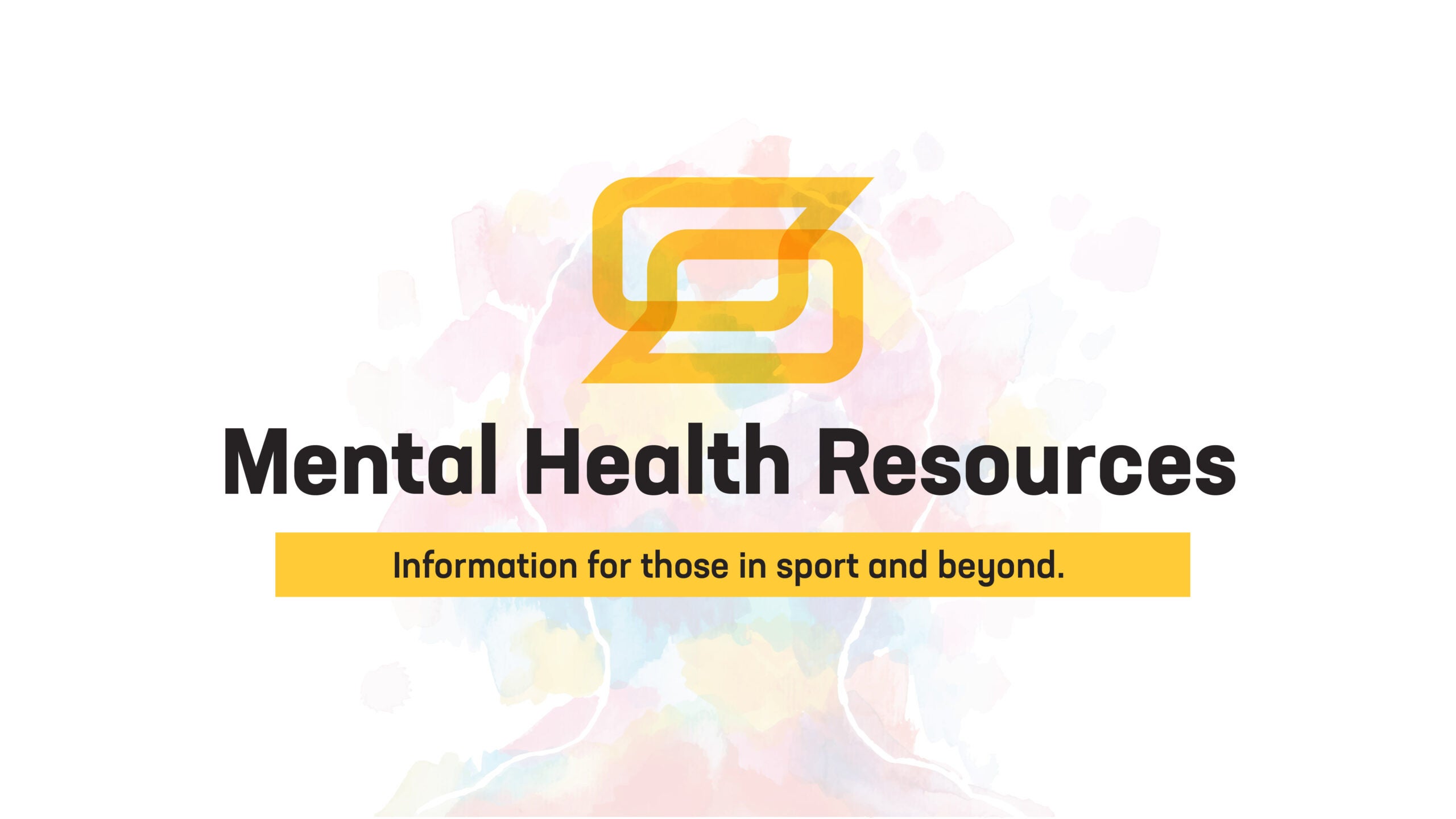Mental Health Resources
Why this matters
Mental health issues are a real, but treatable illness, and you are not alone. If you are having thoughts of hurting yourself or need someone to talk to, please take action now by calling 1-800-273-8255 or by visiting suicidepreventionlifeline.org.
This story or pages it links to discuss suicide and depression which may be upsetting to some people. If you are having thoughts of hurting yourself or need someone to talk to, please skip to the bottom of this article for resources.
The Global Sport Matters Team cares for the health and safety of all its readers. This resource is meant to help navigate the challenging experiences related to mental health in and outside of sport. As Dr. Amber Cargill of the NFLPA said during an episode of GSM Live: The State of Mental Health in Sport, “Getting mental health treatment is becoming a part of the fabric of being an athlete.”
Mental health issues can manifest themselves in many ways, and uniquely for those whose identities may tie into the vast and dynamic world of sport. At the intersection of mental health and sport, we've seen stories from wrestlers facing performance stress, body image issues, drops in academic performance, altered relationships with food, and even how it impacts individuals' interactions and relationships with others. In any case, each mental health journey is relevant, valid, and worthy of care.
Below is a resource guide which aims to be helpful, but is by no means exhaustive. If you or someone you know is in an emergency, call the National Suicide Prevention Lifeline at 1-800-273-TALK (8255) or call 911 immediately. Find global emergency hotlines here.
What is mental health?
- Website: NAMI | Mental Health Conditions
- Website: NAMI | Mental Health By The Numbers
- Website: ADAA | Facts and Statistics
- Article: NCAA | Mind, Body and Sport Article
How do the stigmas surrounding mental health affect people?
- Article: Science Daily | Stigmas and Elite Athletes
- Website: Mayo Clinic | Overcoming the Stigma of Mental Illness
Who are some famous athletes who have spoken about mental health issues?
- Video: HBO | The Weight of Gold trailer
- Video: ESPN | Kevin Love Details His Battle With Mental Illness
- Video: Outside the Lines | Michael Phelps Opens Up On Mental Health
- Video: GMA | Serena Williams Speaks Out About Postpartum Depression Battle
- Video: University of Michigan | For Student-Athletes' Mental Health
How do mental health issues affect different demographics?
- Video: World Bank | Making Mental Health a Global Development Priority
- Video: Al Jazeera | If You're Not White It's Harder To Get Mental Health Care
- Infographic: Mental Health America | Minority Mental Health
- Flyer: WHO | Making A Difference In The Lives Of People With Mental Disorders
- Website: Study.com | Teen Mental Health During Quarantine
Where can I find mental health support and resources?
- Website: TalkSpace | Emergency Resources
- Website: SAMSHA | Substance Abuse and Mental Health Services Administration
- Article: NAMI | Top NAMI Helpline Resources
- Infographic: NAMI | Taking Charge of Your Mental Health
What about support and resources specifically for athletes?
- Video: Michigan Medicine | Greg Harden and UM Mental Health Legacy
- Article: APA | A growing demand for sport psychologists
- Website: NCAA | Health Educational Resources
- Fact Sheet: NAMI | Risk of Suicide
If you or someone you know is in an emergency, call The National Suicide Prevention Lifeline at 1-800-273-TALK (8255) or call 911 immediately.
For a global list of country-specific emergency and suicide hotlines see this resource.
Monthly Issue
Mental Health: A New Priority in Sport
Athletes continue to tell us they are not OK with their actions and words. In response, the sports industry has acknowledged it can and should be doing more to support the people who are its lifeblood, from athletes to coaches and beyond.
Sport is both reckoning with its roots, uncovering how history and habit created circumstances that don’t suit everyone who competes, as well as navigating new territory during a time of unprecedented strain on our mental well-being. By making mental health a priority, sport has an opportunity to confer a host of benefits supporting mental wellness and to be more safe, inclusive, and inspiring.





